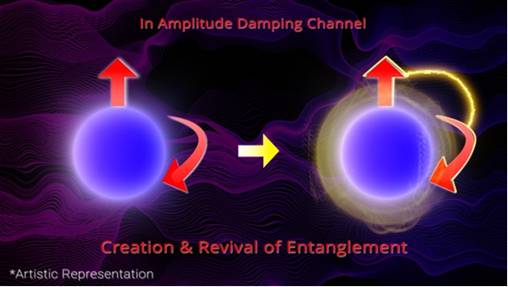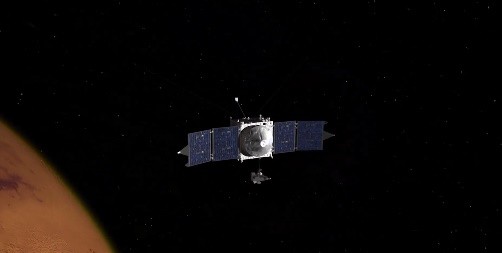



Researchers at the Raman Research Institute have discovered that quantum entanglement, a phenomenon where quantum particles share the same fate, can be resilient in the face of noise. This discovery could help build more robust quantum systems that can tolerate or benefit from noise, accelerating the development of practical quantum technologies.

Copyright infringement not intended
Picture Courtesy: PIB
A new study from researchers at the Raman Research Institute (RRI) reveals that the intraparticle form of entanglement can also emerge from noise itself.
|
Quantum noise refers to random disturbances or interference in quantum systems.
This prevents quantum technologies from working reliably, hindering progress in building super-secure communication networks and ultra-powerful computers.
|
What are the main sources of quantum noise?
|
Earlier, scientists believed quantum noise was purely destructive. When quantum particles interact with their surroundings, they lose their quantum properties.
Recently, researchers at India's Raman Research Institute (RRI), collaborating with the University of Calgary in Canada, discovered that certain types of Quantum noise can help generate or even revive a special kind of entanglement.
The discovery will help to build more robust and efficient quantum systems that can tolerate or even benefit from noise, which could accelerate the development of practical quantum technologies.
|
Prelims Booster => National Quantum Mission
|
Must Read Articles:
Source: PIB
|
PRACTICE QUESTION Q. How can the National Quantum Mission contribute to Atmanirbhar Bharat in high-tech sectors? 150 words |
Quantum noise is like unwanted interference or static that messes up the super-sensitive tiny particles used in quantum computers and communication, causing errors.
NISQ stands for Noisy Intermediate-Scale Quantum, referring to current quantum computers that are powerful but still significantly affected by noise.
Overcoming quantum noise is vital for India to build unbreakable quantum-encrypted communication systems, safeguarding critical national data and defense networks.






© 2026 iasgyan. All right reserved